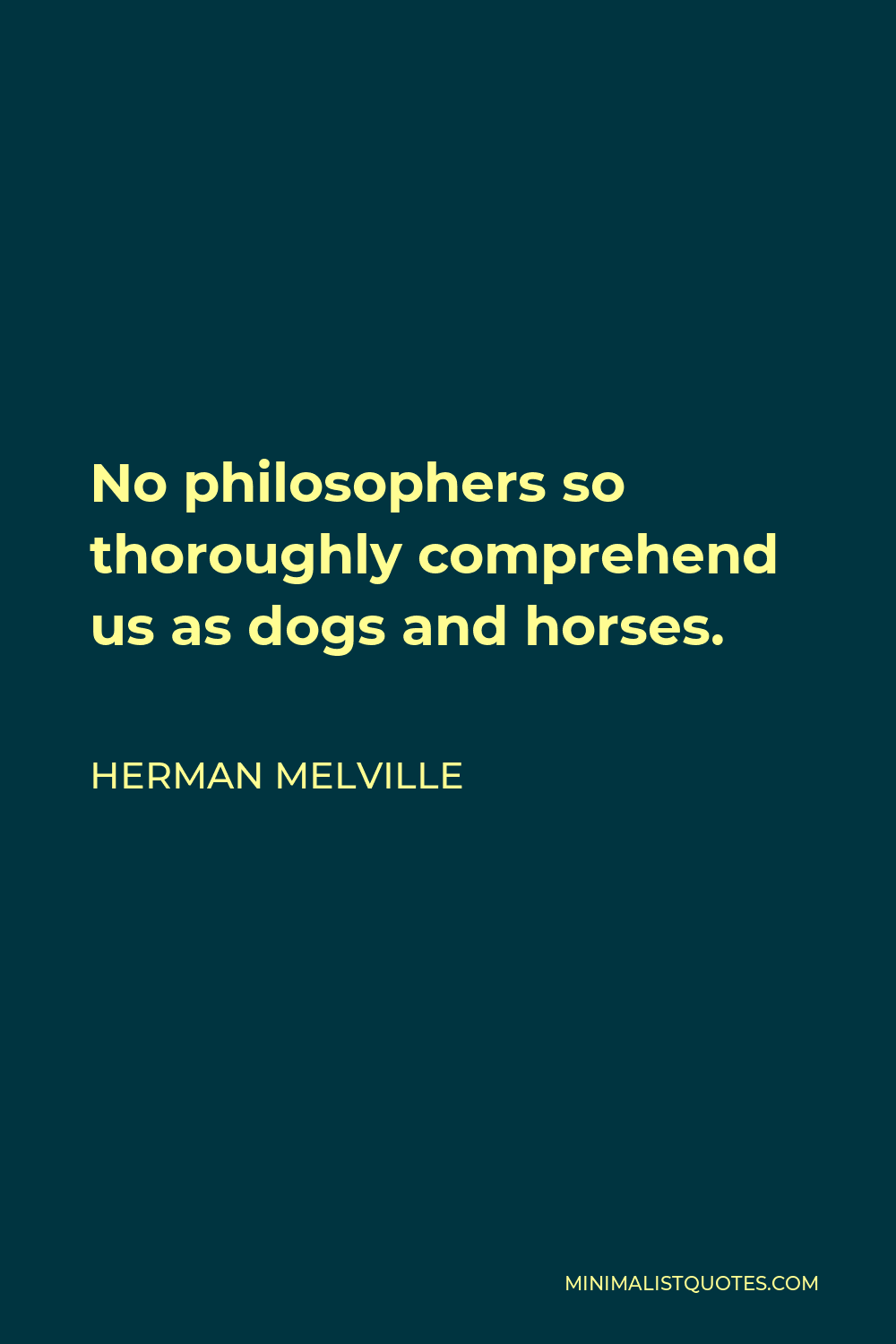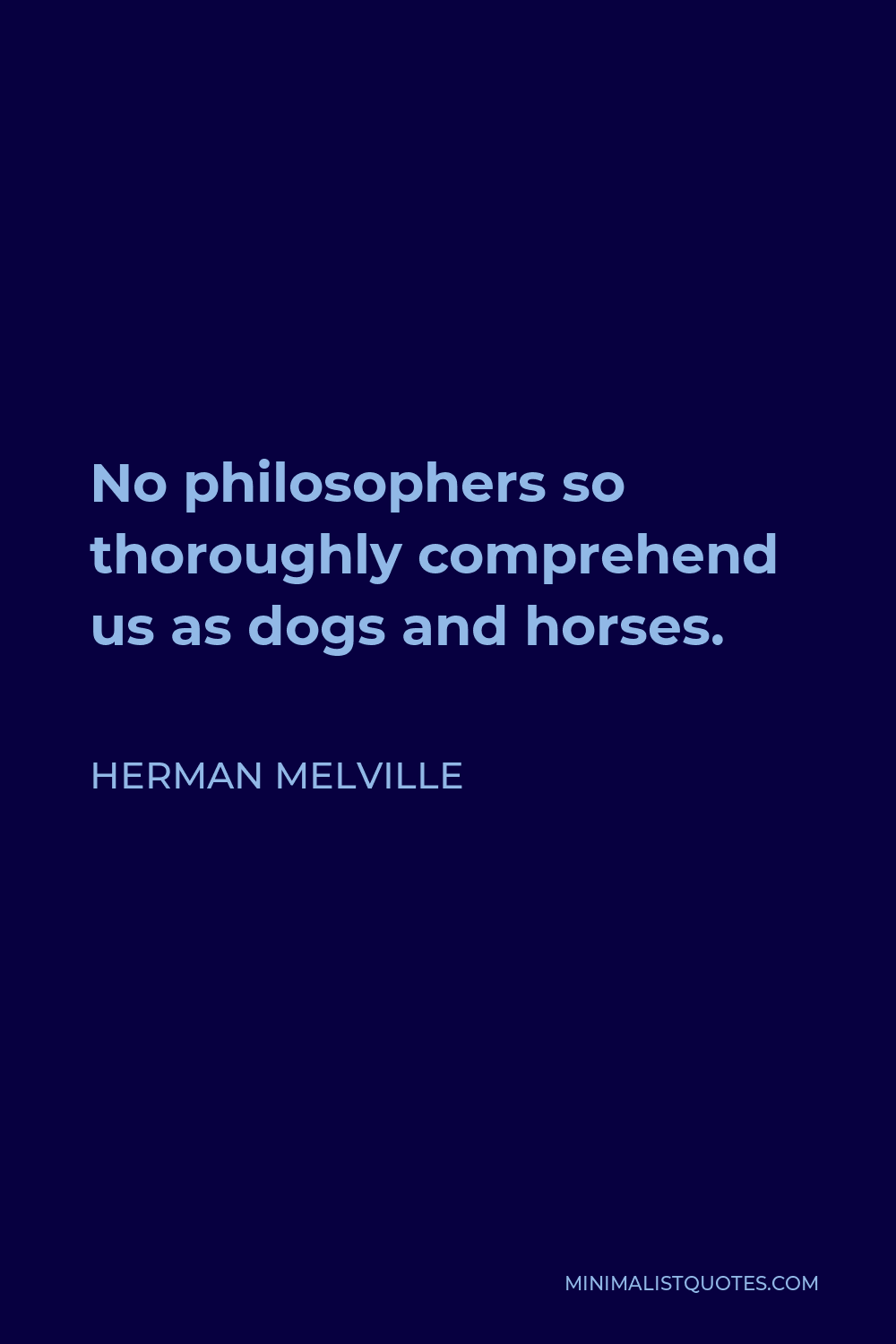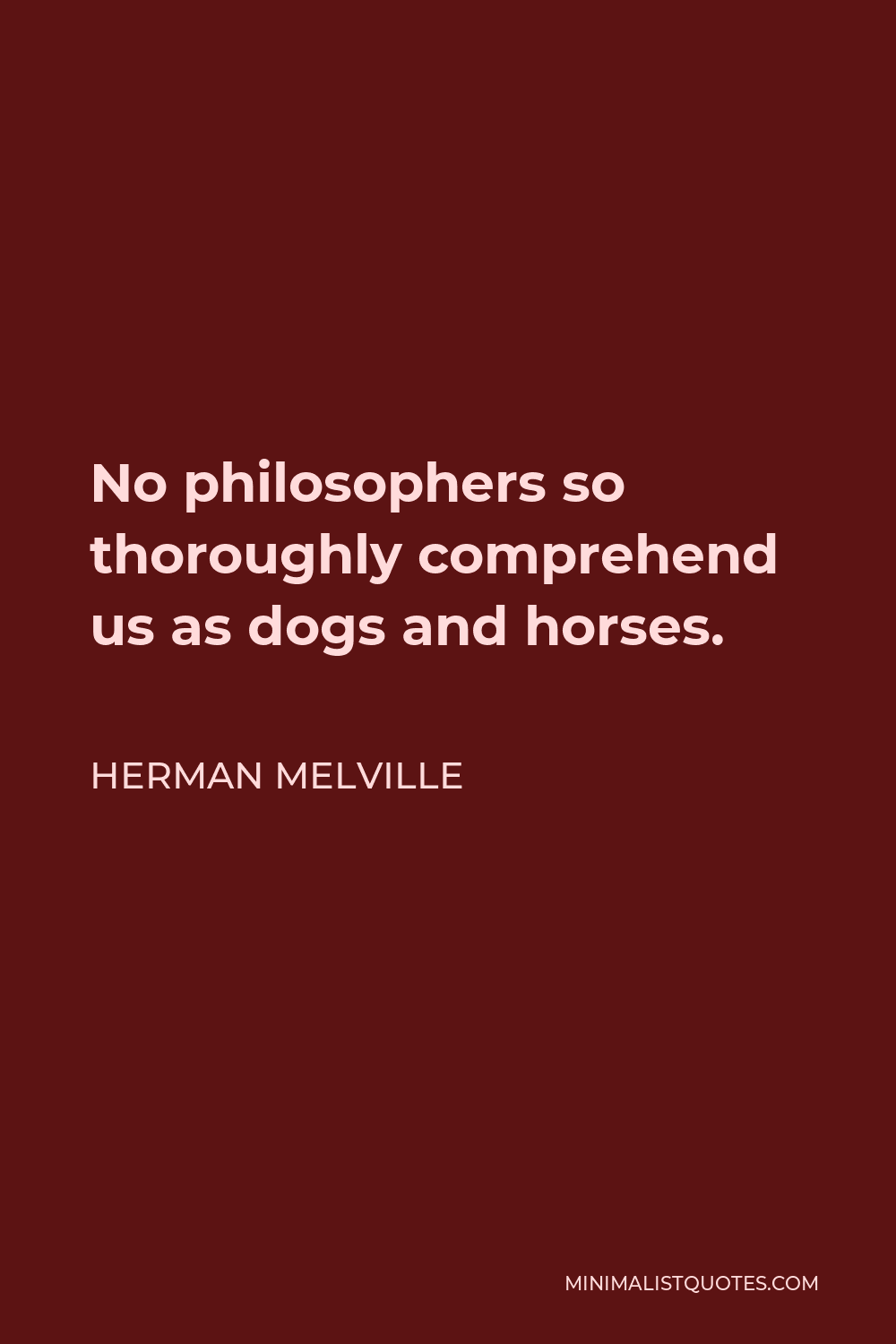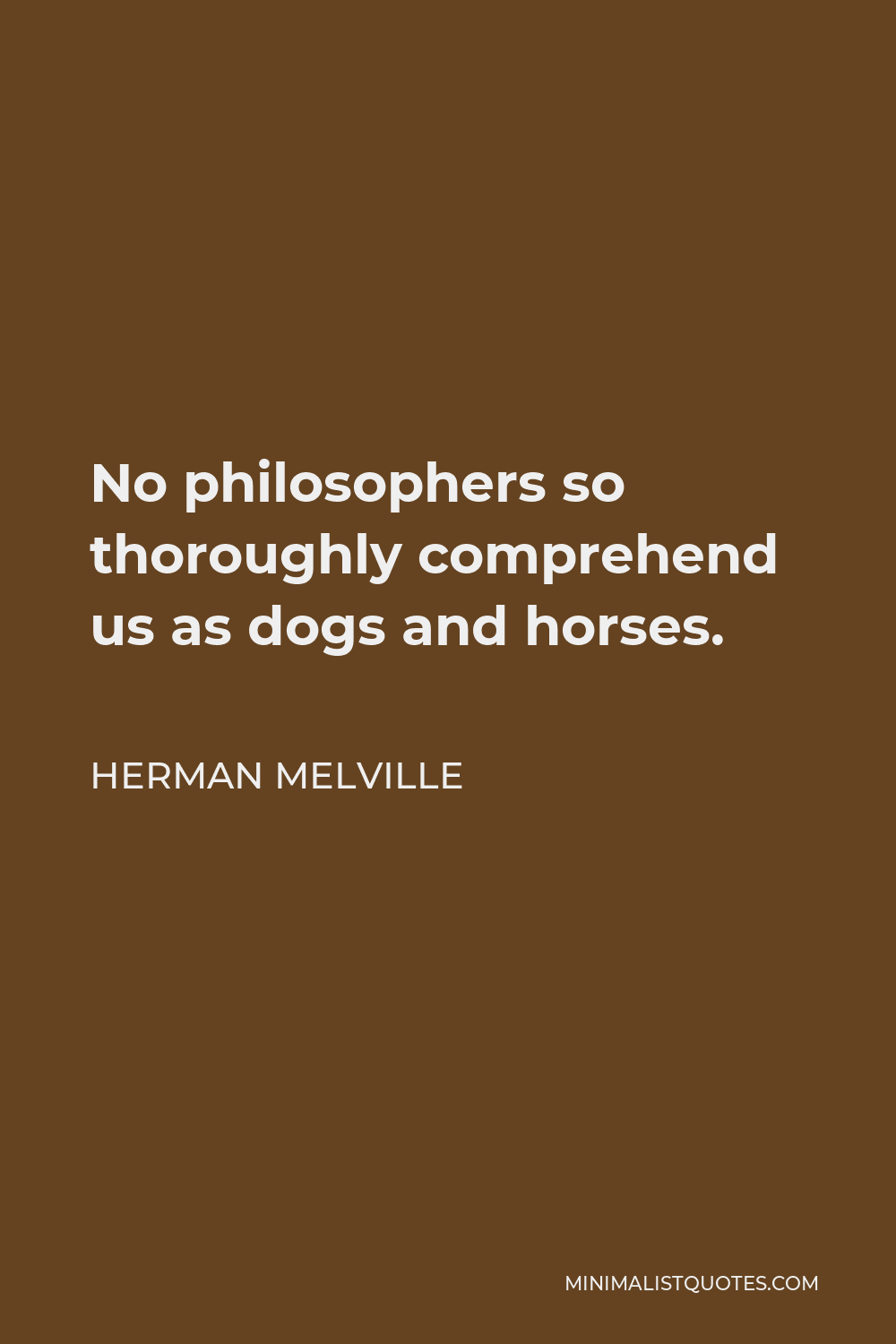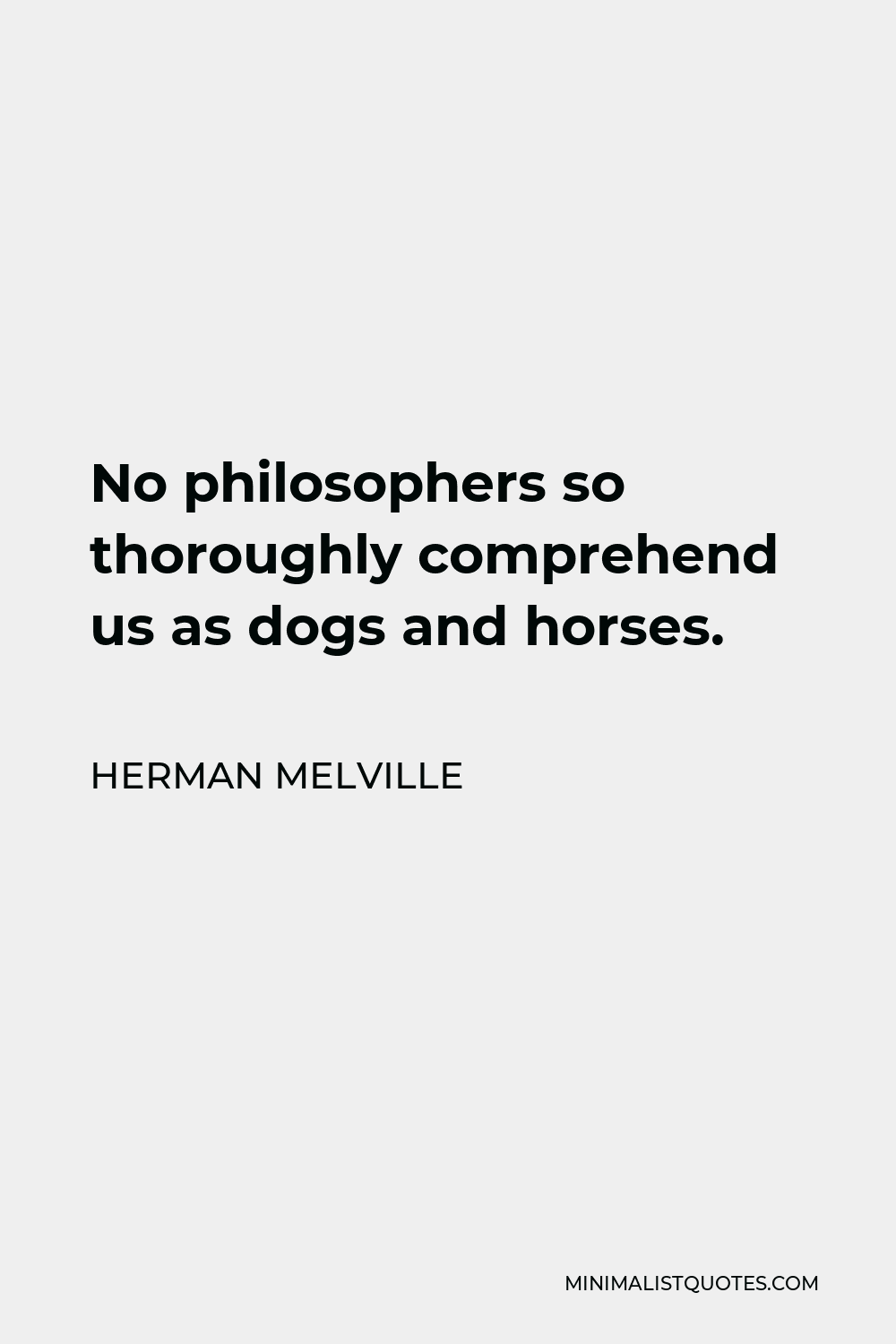When among wild beasts, if they menace you, be a wild beast.
HERMAN MELVILLENo philosophers so thoroughly comprehend us as dogs and horses.
More Herman Melville Quotes
-







-







An utterly fearless man is a far more dangerous comrade than a coward.
HERMAN MELVILLE -







Whatever my fate, I’ll go to it laughing.
HERMAN MELVILLE -





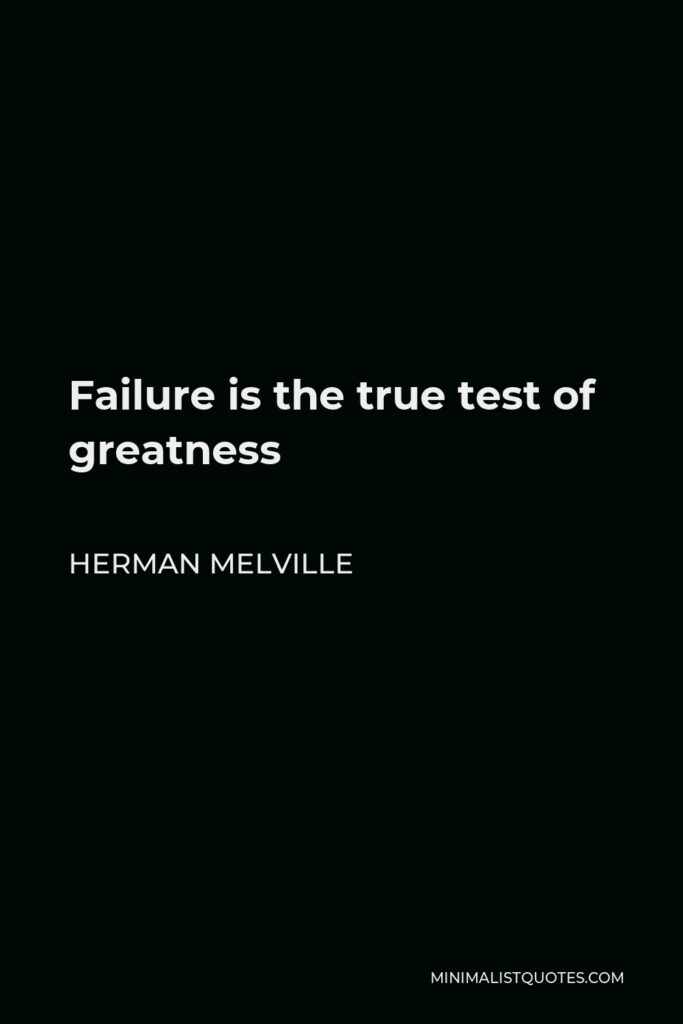

Failure is the true test of greatness
HERMAN MELVILLE -





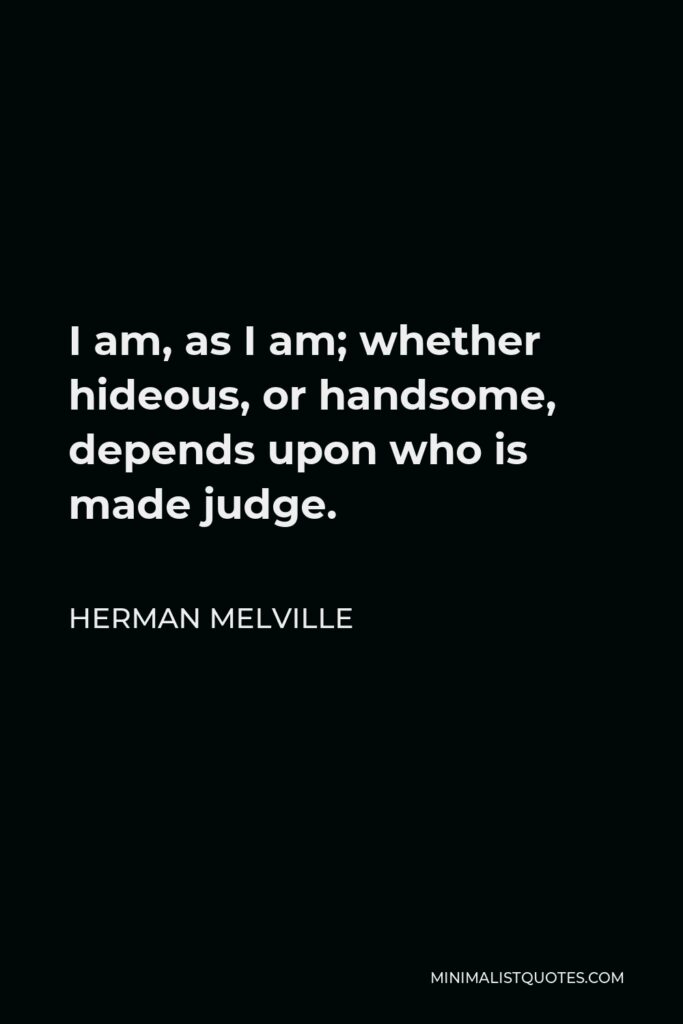

I am, as I am; whether hideous, or handsome, depends upon who is made judge.
HERMAN MELVILLE -







To produce a mighty book, you must choose a mighty theme.
HERMAN MELVILLE -





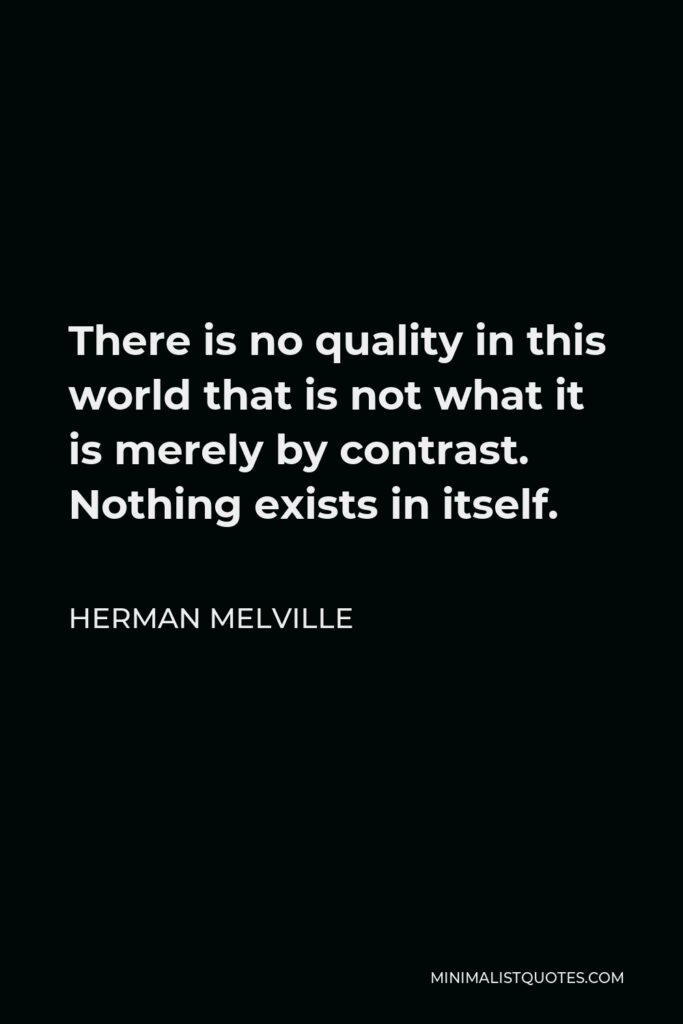

There is no quality in this world that is not what it is merely by contrast. Nothing exists in itself.
HERMAN MELVILLE -





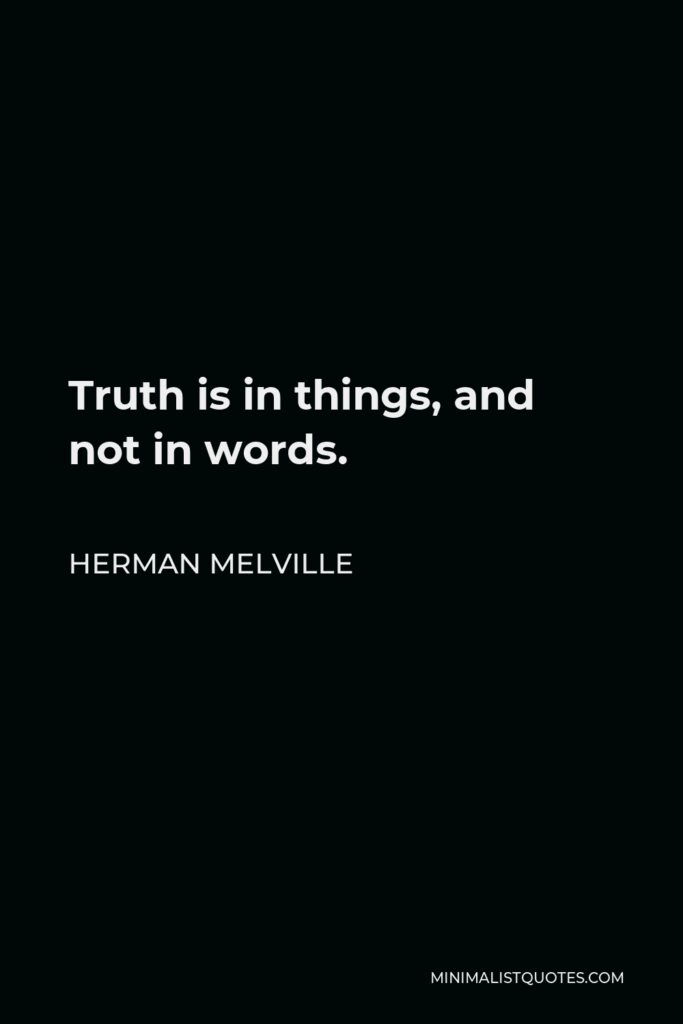

Truth is in things, and not in words.
HERMAN MELVILLE -





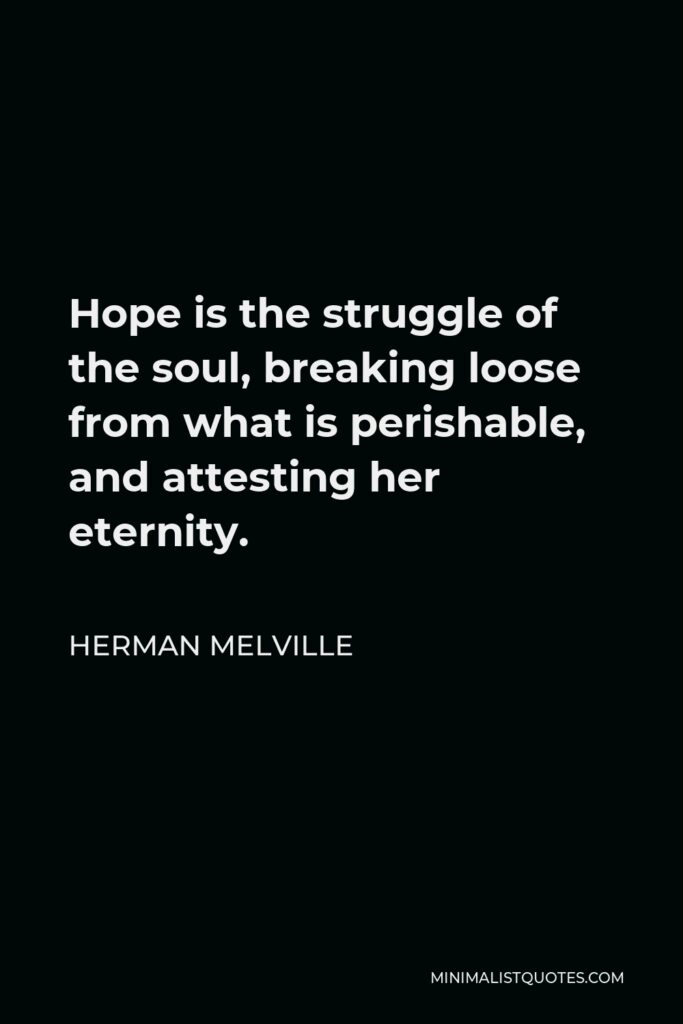

Hope is the struggle of the soul, breaking loose from what is perishable, and attesting her eternity.
HERMAN MELVILLE -







Better be an old maid, a woman with herself as a husband, than the wife of a fool; and Solomon more than hints that all men are fools; and every wise man knows himself to be one.
HERMAN MELVILLE -





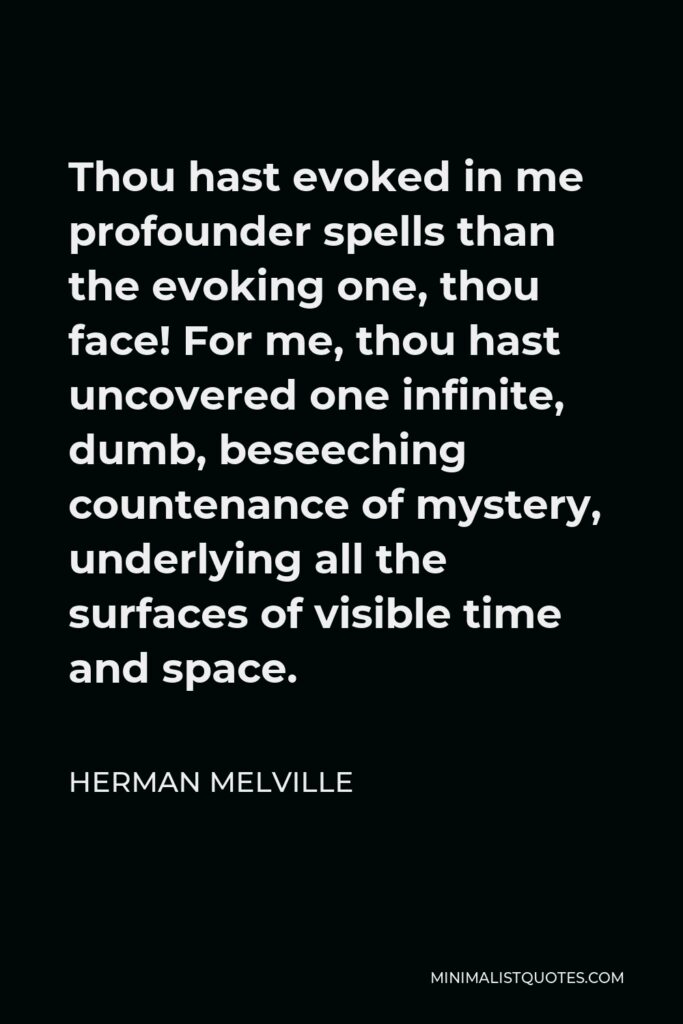

Thou hast evoked in me profounder spells than the evoking one, thou face! For me, thou hast uncovered one infinite, dumb, beseeching countenance of mystery, underlying all the surfaces of visible time and space.
HERMAN MELVILLE -





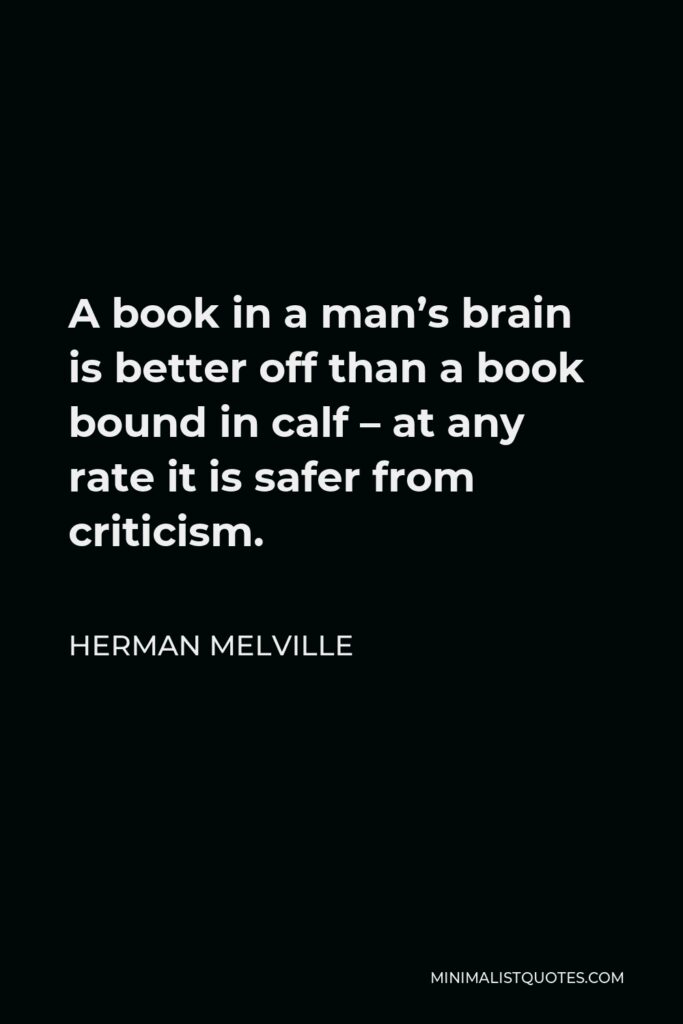

A book in a man’s brain is better off than a book bound in calf – at any rate it is safer from criticism.
HERMAN MELVILLE -





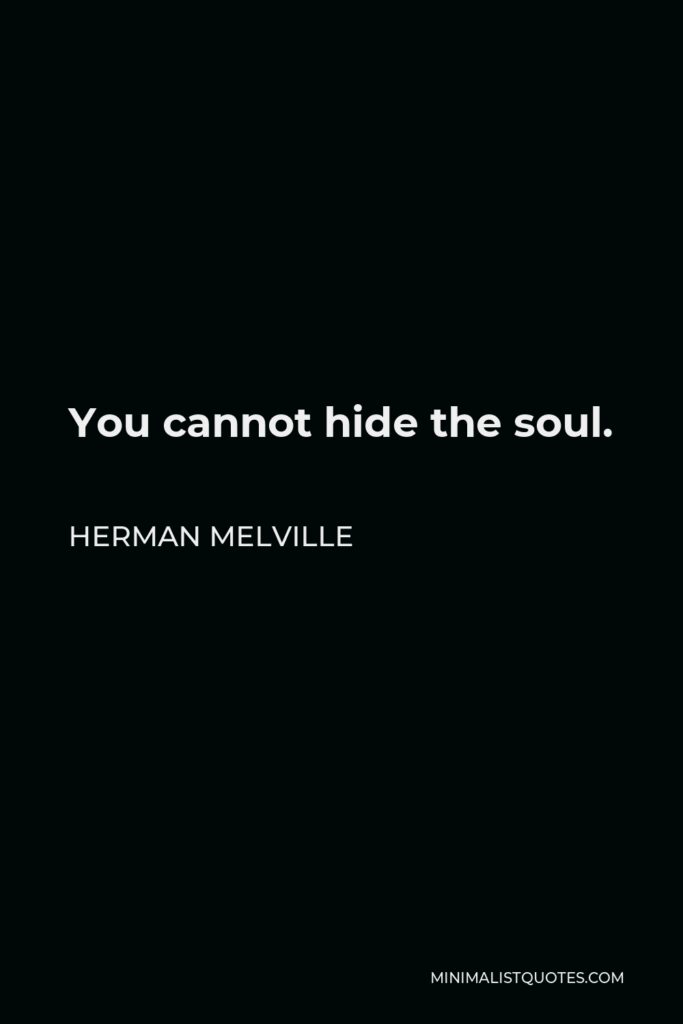

You cannot hide the soul.
HERMAN MELVILLE -





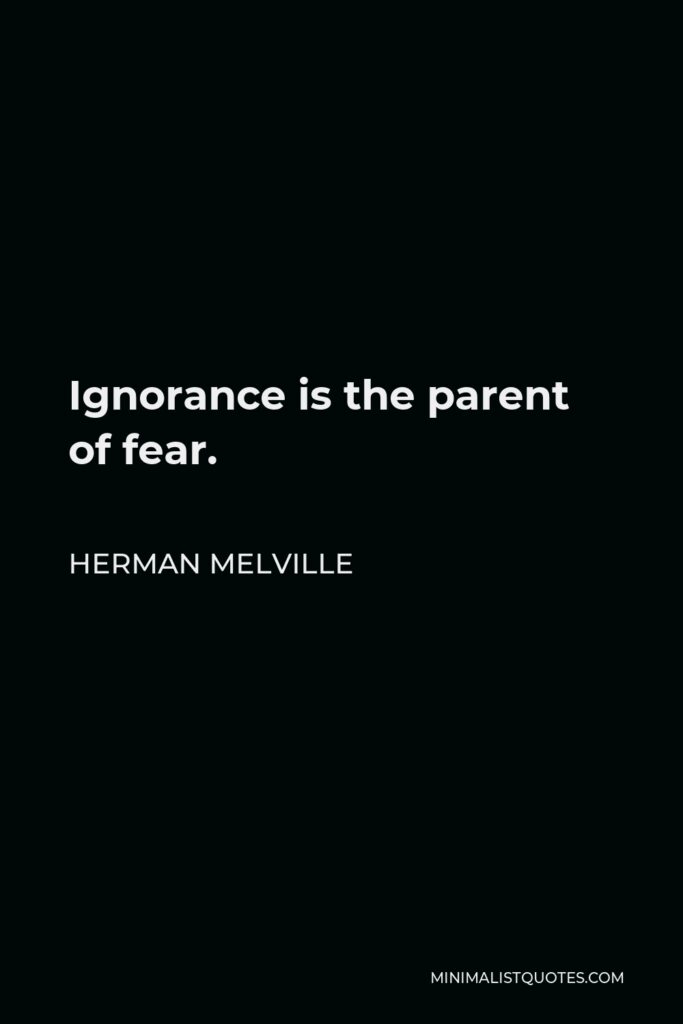

Ignorance is the parent of fear.
HERMAN MELVILLE -





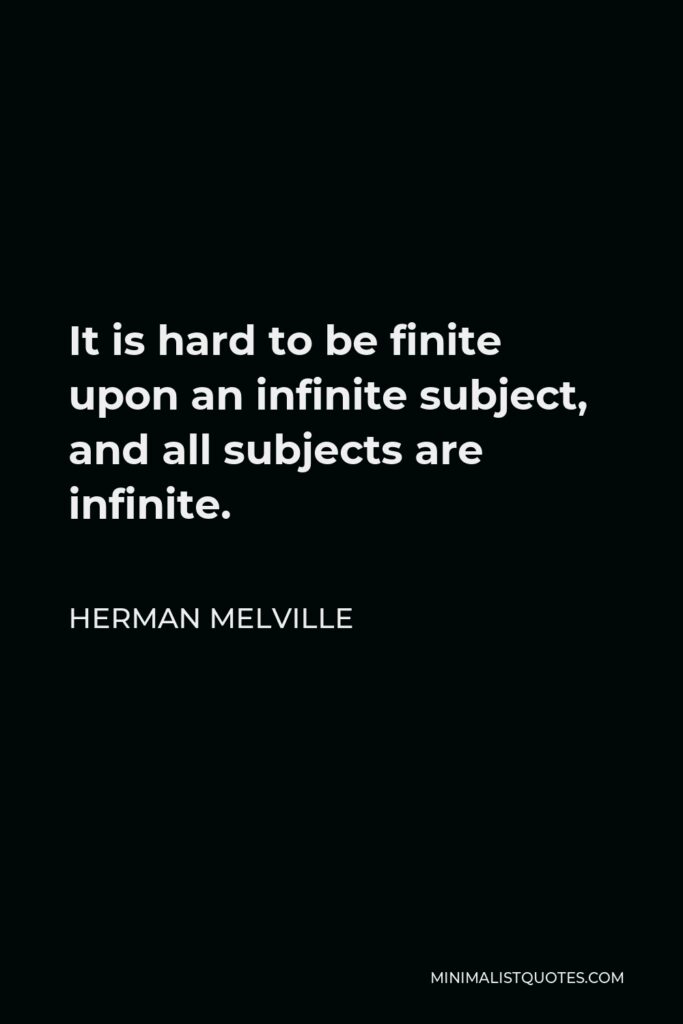

It is hard to be finite upon an infinite subject, and all subjects are infinite.
HERMAN MELVILLE -





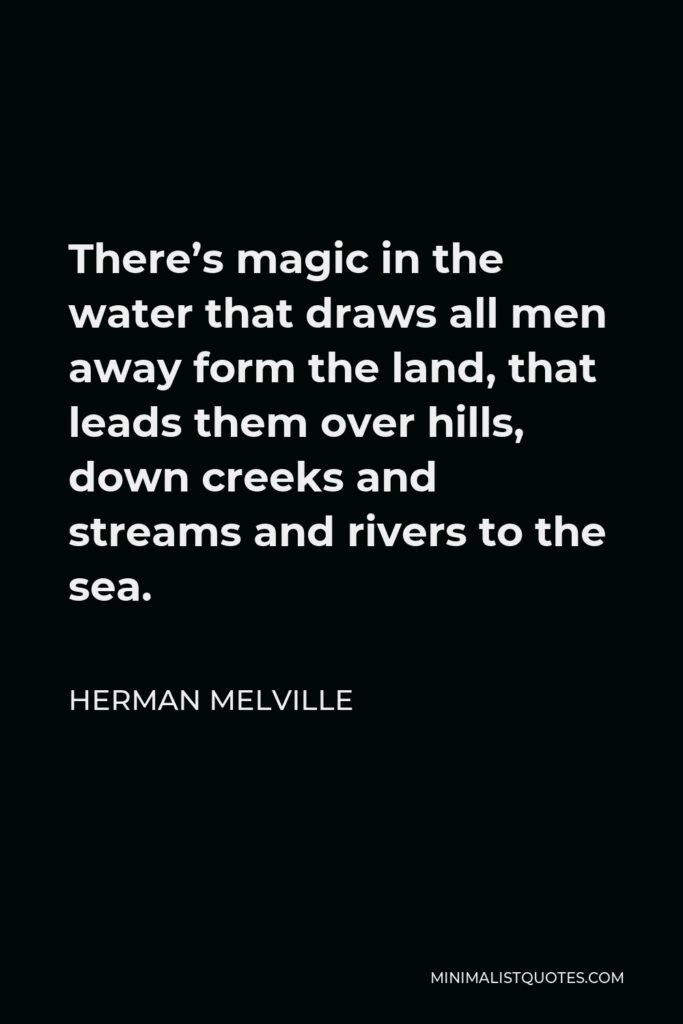

There’s magic in the water that draws all men away form the land, that leads them over hills, down creeks and streams and rivers to the sea.
HERMAN MELVILLE

